Mobile application development using Artificial Intelligence (AI) and Machine Learning (ML) is revolutionizing human lifestyles.Such technologies will continue to integrate into mobile app development, resulting in more optimized, precise, and secure user experiences by 2025. Below are the ideas and themes that reveal the future of mobile apps, major trends, and innovations discussed in this paper.Explore more about our company on [our homepage].
Personalized User Experiences
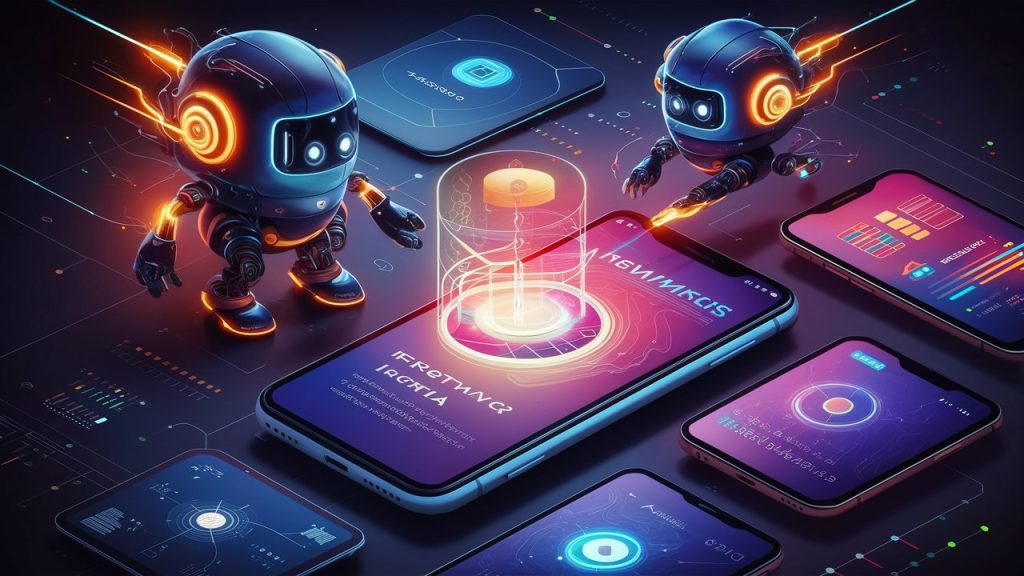
Understanding User Behavior
One From The future of Mobile Apps is That, AI and ML make mobile apps smart and let them determine customers’ likes and dislikes, recommendations included. For instance, in applications like Netflix, artificial intelligence is employed to present the moves and shows that a user has been watching in the past; in applications under the e-commerce category, artificial intelligence is implemented to offer products that meet the user’s preferences.
Enhanced Engagement
There is a better chance to capture users’ attention through apps now since it is possible to design them for various users. Since the users get relevant information, notification and services only, the chances of people spending more time on such applications or tools increases dramatically.
Advanced AI-Powered Chatbots
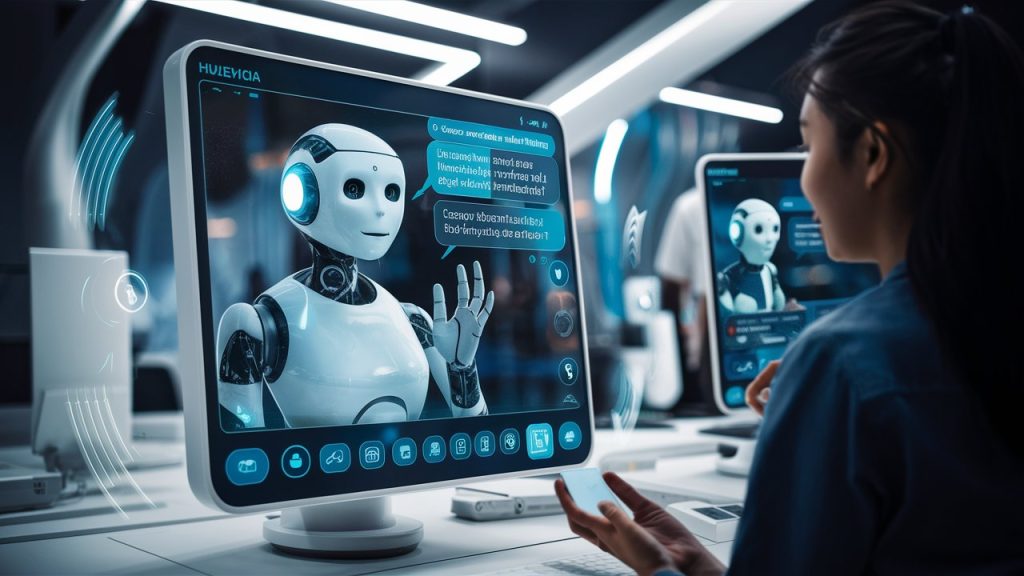
Natural Conversational UI
From The future of Mobile Apps is Also That, The contemporary chatbots based on AI are more interacting and human like as compared to the past. These chatbots are intelligent, able to determine users’ intent and give correct answers; they can help with customer support, setting an appointment, and answering questions in real time. But, conversational AI is already in practice in companies such as Duolingo and Google Assistant.
Improved Customer Support
It begins by asserting that through automating recurrent tasks and cases that customers ask, AI chatbots help the human undertaking to deal with more significant inquiries, thus enhancing the customer support efficacy. This results in faster turnaround and higher customer satisfaction, It is for this reason that clients will seek the online platform for such services.
I have highlighted areas of strengths which includes Predictive Analytics and also Automated Reasoning.
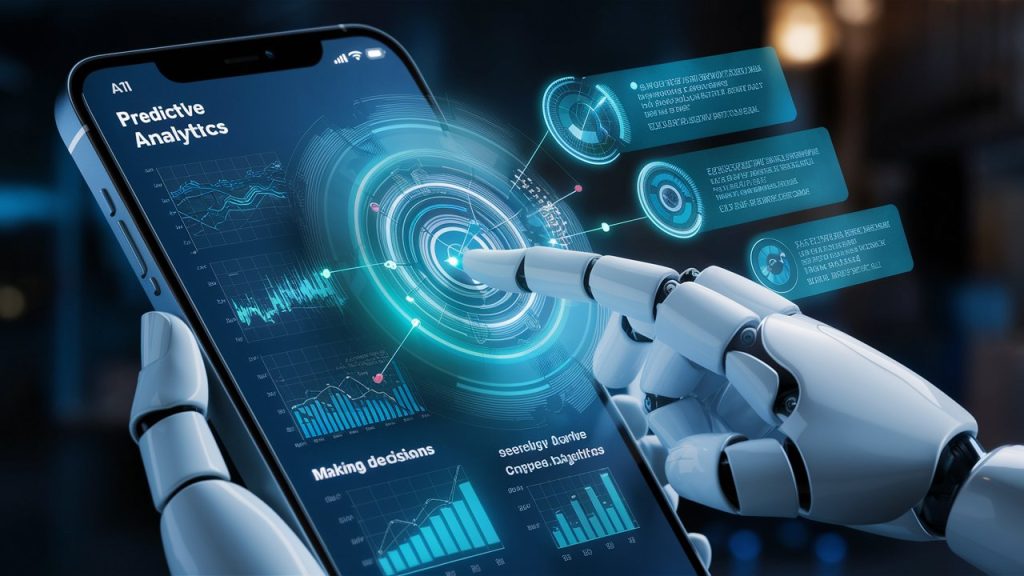
Data-Driven Insights
Often, using AI and ML, it is possible to learn user behavior and make appropriate predictions about the user preferences. It enables mobile apps to provide proactive recommendations, as a function of knowing many things about the user and recommending actions before the user requires them. For instance, the feature such as predictive text and search suggestions improve client comfort and utility value.
Automated Decision-Making
One From The future of Mobile Apps is That, Mobile apps are able to make real time decisions with data using the basic mechanism of ML algorithms. For instance, ride hailing apps like Uber leverages AI to calculate the best pick-up and drop-off routes and the fare charged from the client and all in the shortest time and at the most affordable rates possible. Dive deeper into our [blog posts] for in-depth insights and examples.
Enhanced Security Features
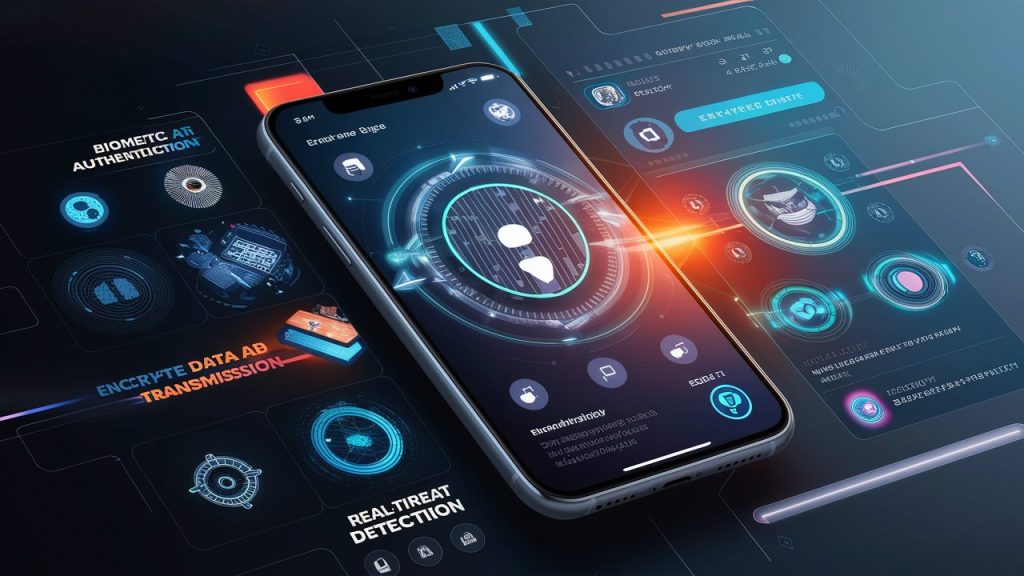
Biometric Authentication
One of the main questions that any users of mobile applications have is security. AI-integrated biometric identification techniques like facial recognition, fingerprint scanning, speaker acknowledgment are the additional advantages of security. These technologies guarantee that the various important information and functionalities can only be accessed by the people who are allowed to do that.
Threat Detection and Prevention
Anti-virus programs can actively scan for security risks and their strikes at AI. This keeps the programs vigilant of any disparities from the regularity they observe of patterns and trends in using the systems to prevent any data and privacy breach.
Interoperability with Augmented Reality (AR) & Virtual Reality (VR)
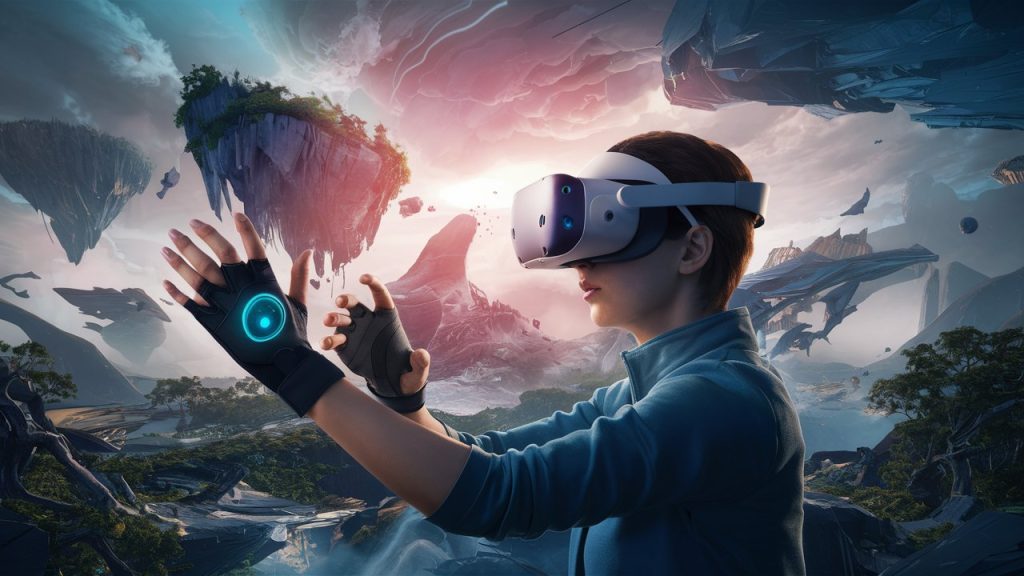
Immersive Experiences
One From The future of Mobile Apps is That, Thus, AI increases the utility of AR and VR through delivering more engaging experiences. Mobile applications can place digital information on top of the real world or build complete fictitious environments that transform segments such as gaming, shopping, and real estate industries. For instance, the augmented reality assists in shopping apps where the user gets a real feel of the products in their homes before buying them.
Training and Education
AR and VR together with AI create new opportunities in training and education. Some apps are useful in connection with medical purposes; they can give a training mode that can imitate outcomes of surgery for doctors, whereas other apps are built to give an educational mode and can be used for interactive learning based on a user’s speed and level of understanding. Discover our full range of [services] to see how we can bring your app vision to life.
The application also functions in complete harmony with the IoT devices.
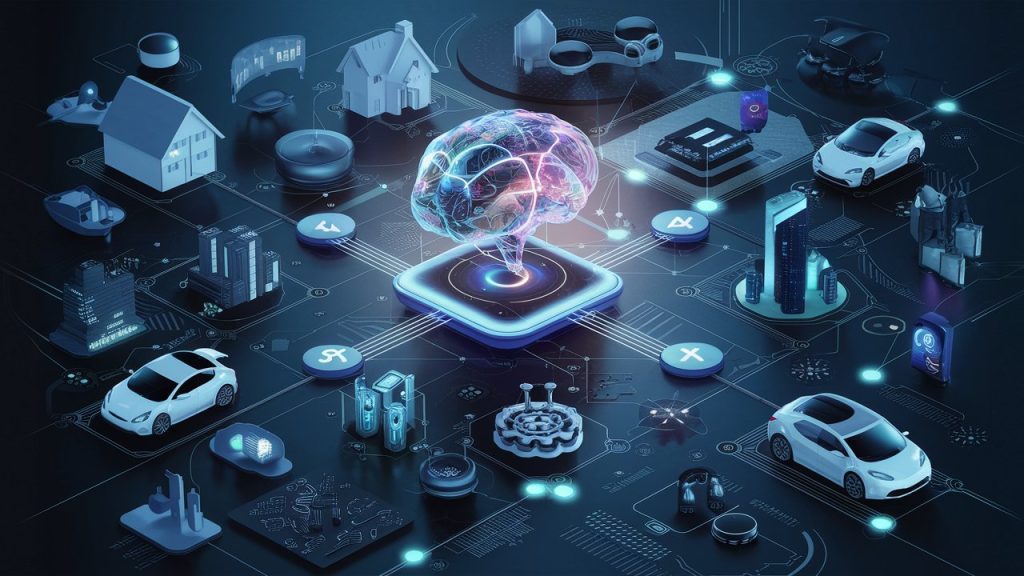
Connected Ecosystems
AI and ML make it easy to design mobile applications to interconnect and work with IoT smart devices hence forming smart connected world. Smart home devices can be operated remotely, daily health records and other internet of things gadgets can be controlled through convenient, user-friendly applications on the smartphones. This connectivity increases utility and practicality to ensure that the daily tasks in life are not heavily burdensome.
Real-Time Data Processing
Smart devices and appliances create petabytes of data and AI can analyze these data with live results. For instance, wearable health devices monitor the body physical signs, and with the help of AI, inform wearers/physicians of the likely complications before they escalate.
Conclusion
Mobile apps of the future will hence entail a higher degree of intelligence through the adoption of AI and ML solutions. These technologies will remain relevant and further the development, providing better, faster, and safer ways of utilizing services. As AI and ML advance, it can be easily predicted that the importance of mobile applications for carrying out our daily routine interaction with the devices and with each other will only increase.
Thus, developers and businesses have an opportunity to use these trends and release remarkable applications for smartphones that will satisfy a consumer’s requirement in applications, thus keeping up with the demand on the modern market. [Contact us] today and let’s discuss your project in detail.

